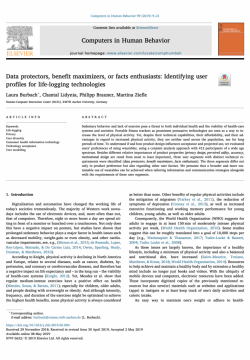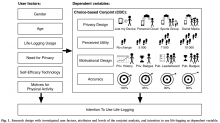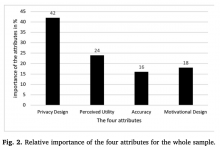
Abstract
Sedentary behavior and lack of exercise pose a threat to both individual health and the viability of health-care systems and societies. Portable fitness trackers as prominent persuasive technologies are seen as a way to in- crease the level of physical activity. Yet, despite their technical capabilities, their affordability, and their ad- vantages in regard to increased physical activity, they are neither used across the population, nor for long periods of time. To understand if and how product design influences acceptance and projected use, we evaluated users’ preferences of using wearables, using a conjoint analysis approach with 412 participants of a wide age spectrum. Besides different relative importances of product properties (privacy design, perceived utility, accuracy, motivational design are rated from most to least important), three user segments with distinct technical requirements were identified (data protectors, benefit maximizers, facts enthusiasts). The three segments differ not only in product preference but also regarding other user factors. We presume that a broader and more sustainable use of wearables can be achieved when tailoring information and communication strategies alongside with the requirements of these user segments.
Burbach, L., Lidynia, C., Brauner, P., Ziefle, M.: Data protectors, benefit maximizers, or facts enthusiasts: Identifying user profiles for life-logging technologies. Comput. Human Behav. 99, 9–21 (2019).


